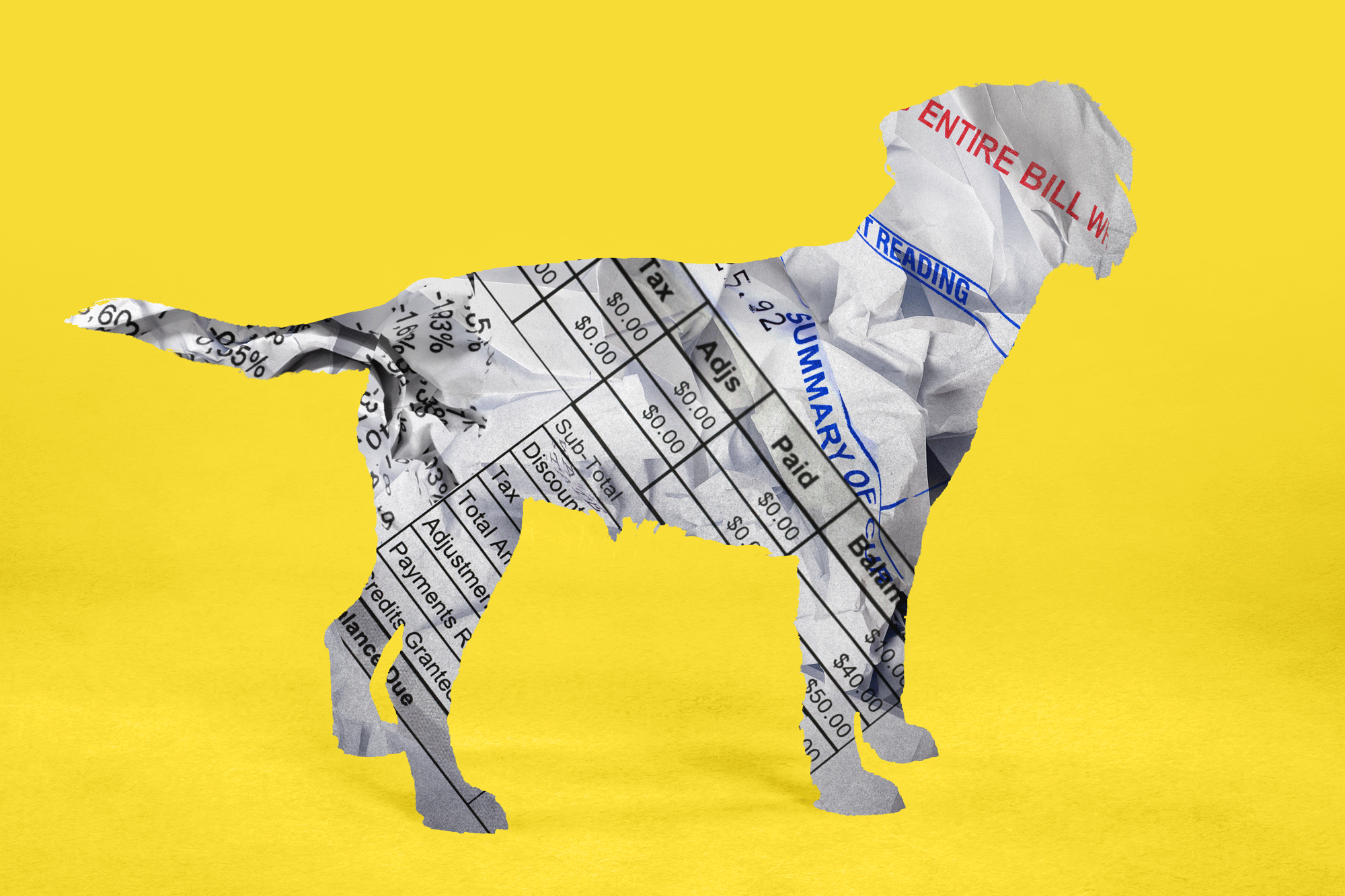Column: Be ready to fight if a pet insurer, like a people insurer, denies a valid claim
- Share via
It’s every pet owner’s worst nightmare: Your beloved furry friend comes down with a serious, costly illness. That’s why pet insurance in the United States has grown into a nearly $900-million business.
But, as with human health insurance, claims for critters frequently can be denied by insurers for a variety of reasons. Most often, it’s because the illness is deemed a preexisting condition, which few pet policies will cover.
Challenging such denials can be frustrating, especially if your pet’s medical needs are urgent.
That’s where Pasadena resident Samantha Bonar found herself. Her pit bull, Kaya, survived cancer several years ago. Now she has cancer again.
Kaya’s veterinarian said the two cancers were unrelated. But the dog’s insurer, Healthy Paws of Bellevue, Wash., refused to cover Kaya’s treatment, ruling the latest diagnosis a repeat of the first.
Bonar, 48, appealed that decision but got nowhere. When we first spoke this week, it had been more than two months since her initial claim was rejected.
Meanwhile, the costs of Kaya’s care were climbing.
“With cancer, you’re racing against time,” Bonar told me. “It seemed like the insurance company was delaying in hopes she’d just die.”
Harsh. But then, millions of people have experienced the indignity of fighting denied claims and have wondered if their insurer was making the process deliberately troublesome in hopes the patient would just give up and go away.
Healthy Paws said in a statement to me that Bonar’s claims for Kaya’s care took an unusually long time “due to the large number of claims under review.”
I wrote on Tuesday about how my insurer recently rejected my claim for a new insulin pump because of “lack of medical necessity” — an unexpected decision in light of the fact that I have incurable Type 1 diabetes and have worn a pump for years.
It turned out my insurer was simply missing a form, which I was able to untangle with a series of time-consuming calls and emails. What steamed me, though, was the fact that a simple clerical error had resulted in a full-on claim denial.
A 2011 study by the California Nurses Assn. estimated that the state’s top insurers rejected about a quarter of all claims. A separate federal study that year by the Government Accountability Office found that denied claims were reversed in about half of all appeals, for those with the stamina to work the system.
The same dynamics play out with pet insurance. But because preexisting conditions are almost always grounds for a claim denial, it’s far easier for pet insurers to cut you off if your animal is prone to accidents or sickness.
In Britain, a 2016 report found that 37% of all pet insurance claims were denied. I couldn’t find a commensurate figure for this country, but it has to be close.
Bonar’s dog was diagnosed with a tumor on her larynx — laryngeal rhabdomyosarcoma — in 2013. Bonar described the cancer as “very rare and unusual.”
And she should know. Bonar, who worked at the L.A. Times until 2007 (the same year I arrived; we never met), now works part time as a writer for Duarte’s City of Hope, a leading cancer facility. She interviews oncologists and patients for the medical center’s Breakthroughs blog.
So when Healthy Paws ruled that Kaya’s new cancer on her jaw — mandibular anaplastic sarcoma — was related to the first, Bonar immediately said, no, they have it wrong. “I understand this stuff,” she told me.
Kaya’s vet, Dr. Jared Lyons, did as well. He submitted a letter to the insurer saying the new cancer “is in no way related” to the earlier tumor.
He said “it would be incredibly unlikely” for the first cancer, after successful treatment with surgery and radiation, “to lay dormant for over four years and suddenly grow in a completely different location and spread to the rest of the body.”
I reached out to other veterinary oncologists for their opinions. Dr. Michael Kent at UC Davis said “it’s highly unlikely” the two cancers are related.
“These are very different cancers,” he told me. “It’s like saying a dog had an infection and then got another infection years later, so it’s a preexisting condition.”
Dr. David Vail, an oncologist at the University of Wisconsin School of Veterinary Medicine, said he “would tend to agree that the two are unlikely to be related.”
And what do you know? Just hours after I contacted Healthy Paws and shared Kent’s and Vail’s opinions, Bonar received an email from the insurer saying a review of her appeal had determined that the two cancers are unrelated.
“Ms. Bonar’s claim will be paid in full,” Healthy Paws told me in its statement.
That includes the nearly $13,000 Bonar said she’s spent so far on Kaya’s illness, which some people who don’t own pets might think is crazy but which many pet owners will understand immediately.
When we spoke after the company reversed course, I told Bonar she must be pleased.
She said yes, but she’s also angry because it’s easy to imagine that lots of people, faced with thousands of dollars in out-of-pocket costs after a denied claim, might choose to put their pet down.
“This could have gone very differently,” she said.
Her advice: Fight.
“Educate yourself and use every resource available,” Bonar said. “Don’t give up.”
I agree. Whether we’re talking pooches or people.
David Lazarus’ column runs Tuesdays and Fridays. He also can be seen daily on KTLA-TV Channel 5 and followed on Twitter @Davidlaz. Send your tips or feedback to [email protected].
More to Read
Sign up for Essential California
The most important California stories and recommendations in your inbox every morning.
You may occasionally receive promotional content from the Los Angeles Times.











